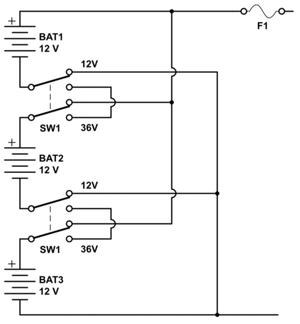LAS VEGAS–New wireless networking technologies are poised to cut the cable clutter on your desktop–starting with USB cables.
At CES 2007, vendors including Tzero, Alareon, Staccato, and even DaimlerChrysler are demonstrating wireless networking technologies based on ultrawideband (UWB). And in the coming year, many manufacturers will be shipping Wireless USB products based on UWB technologies.
WiMedia is the leading UWB standard, although it is not used by every company utilizing UWB. Wireless USB (WUSB) is an extension of the USB 2.0 standard, and it is based on WiMedia.
The coming wave of products is thanks to the work of two standards-setting bodies: The WiMedia Alliance and the USB Implementers Forum. Both are in the final stages of certifying products as compatible with their respective standards–which is why WUSB products are not on the market yet, but will be soon.
The WiMedia Alliance, which boasts 273 member companies, defines and promotes the WiMedia standard–a platform for UWB-based communication that will guarantee interoperability between devices from various manufacturers. (Non-WiMedia UWB technologies, by contrast, will only work with other devices from the same manufacturer.)
WiMedia enables a theoretical bandwidth of 480Mbits/sec, with low power consumption. In practice, UWB vendors are seeing data rates of about 100 to 200 Mbits/sec, since data protocols add some overhead, and because local conditions can interfere with transmissions.
The USB Forum, on the other hand, is the industry organization responsible for overseeing USB standards. Wireless USB is based on WiMedia, and is designed to be completely compatible with existing USB products. Think of it as USB over WiMedia instead of USB over copper cables.
More than 900 companies are members of the USB Forum, of which about 200 are actively working on Wireless USB.
The work of both organizations is coming to a head this year. The WiMedia Alliance is in the process of certifying devices for compatibility and interoperability. The first certified products will be WiMedia chips from vendors such as Staccato and Alareon, which will ship to consumer electronics manufacturers in Q1 of this year. Consumer products will in turn be available for purchase by mid 2007.
The first WiMedia and WUSB products to hit the market will be WUSB hubs and dongles: You connect a dongle to your USB port, and it communicates wirelessly with a USB hub across the room, so you can plug USB devices into the hub and have them show up on your computer just as if they’d been plugged directly into it.
By the second half of 2007, industry insiders say, WUSB will be integrated into notebook computers, printers, and other desktop devices; WUSB-enabled portable devices, such as cameras, will follow in late 2007 or early 2008.
WUSB isn’t the only field where UWB technologies are being used. For instance, Tzero Technologies is demonstrating a WiMedia-based system for transmitting HDMI signals wirelessly. That would enable you to connect a media player to a widescreen TV (or several TVs) without running cables.
Tzero’s technology will be integrated into products from UTStarcom, Siemens, Audiovox, and others–products which are slated to hit the market by mid 2007.
Link: Ultra Wideband Will Cut the Cable Clutter
Link broken? Try the Wayback Machine.

